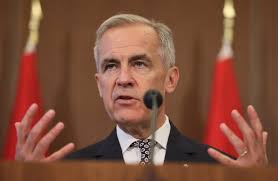
Introduction to Counter Tariffs
Counter tariffs, also known as retaliatory tariffs, are crucial tools used by countries to protect their domestic industries and respond to unfair trade practices. In Canada, the discussion around counter tariffs has become increasingly relevant amid ongoing trade negotiations, particularly with the United States and China. As global trade dynamics evolve, understanding the implications of these tariffs is essential for both consumers and businesses.
Current Situation of Counter Tariffs in Canada
In recent months, Canada has found itself in a complex trade landscape characterized by shifting policies and international tensions. Following the imposition of initial tariffs on Canadian steel and aluminum by the U.S. in 2018, Canada responded with its own counter tariffs totaling over $16 billion aimed at various U.S. products. These measures were intended to protect Canadian industries while also sending a clear message regarding the importance of fair trade. The ongoing trade disputes have led Canada to evaluate its position repeatedly, particularly as negotiations for the updated USMCA (United States-Mexico-Canada Agreement) progressed.
Impact of Counter Tariffs on Trade Relations
Counter tariffs can have far-reaching implications for bilateral trade relations. For Canadian businesses, counter tariffs on U.S. goods have affected multiple sectors including agriculture, manufacturing, and retail, with costs often passed down to consumers. A report by the Canadian Chamber of Commerce estimated that trade tensions could reduce Canada’s GDP by approximately $10 billion in the next few years. As retaliatory measures continue, Canada must navigate its relationships with trading partners carefully, maintaining a balance between protecting domestic industries and fostering international cooperation.
Future Outlook and Conclusion
Looking ahead, Canada is likely to continue using counter tariffs as a strategy to address unfair trade practices while advocating for a rules-based international trading system. The ownership of counter tariffs will rely heavily on ongoing negotiations and the global economic climate. Experts suggest that Canada should focus on multilateral agreements and strengthen its alliances to build resilience against potential trade wars. For Canadians, staying informed about changes in trade policies could mitigate impacts on both individual wallets and the broader economy. As the trade landscape becomes increasingly intricate, understanding the nature and consequences of counter tariffs remains vital for all.



